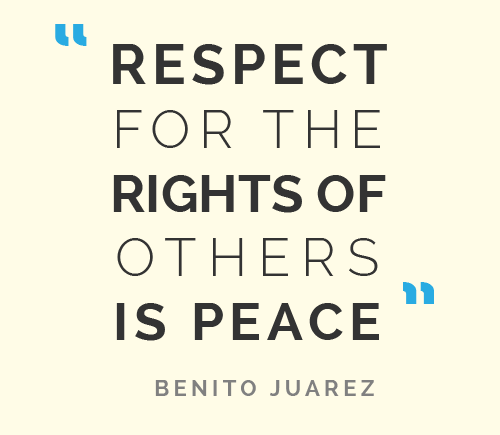Douglas Fry
Unicorns, Peaceful Societies, and Peace Systems
Several scholars deny the existence of peaceful societies, arguing that they are simply a myth, but Douglas Fry characterizes their attitudes as a “unicorn factor,” after the mythological animals. Deniers maintain that peaceful societies, like unicorns, are figments of the imagination, but Fry disputes that. Last week, as part of a presentation titled “The Creation […]
Summary of Evidence for Peaceful Societies [Panel Presentations, part 3]
Papers by Kirk Endicott and Alberto Gomes, reviewed here in recent weeks, represented only part of the richness of information about peaceful societies available at a panel session of the American Anthropological Association in Montreal last month. Rather than continue to review the nine additional papers, all of which were quite insightful, it might be […]
Peace Systems Exist—and More Can Be Developed [journal article review]
Douglas Fry asks, rhetorically, if it is possible to learn anything from societies that do not go to war, and he answers that we could learn how to foster peace in the world. He is too keen an anthropologist to state, prescriptively, that this or that approach will prevent war. But the information he provides […]
Overview of Peaceful Societies To Be Presented by Douglas Fry
“Peaceful societies demonstrate that human beings clearly have the capacity for living with very little violence and for dealing with conflicts without aggression,” Douglas Fry will argue tomorrow. In a presentation at an important conference in Denmark, he will also maintain that nonviolent societies provide “specific insights about ways to reduce violence.” Fry will present […]
Is Peace Really Possible, or Is Warfare Inevitable? [magazine article review]
The debate over the supposed innate propensity of human beings to be aggressive has once again surfaced in the popular press, this time in the current, April, issue of Discover Magazine. (The article is also available for free on the Discover website.) The proponents of the different sides of this discussion are well-known scientists whose […]
Warfare Could Become Obsolete—If We So Desire [book review]
Why should anyone quibble about the obvious? Don’t daily news reports show how violent we are? Don’t scholarly studies prove that humans males have evolved to be warlike? In his new book Beyond War: The Human Potential for Peace, Douglas Fry doesn’t just quibble about these issues: he demonstrates quite effectively that they are based […]
Nonwarring Societies Develop Peace Systems
A number of nonwarring societies can be identified in the ethnographic literature, and some of them, according to Douglas Fry, have even formed peace systems—alliances that help them avoid warfare with one another. A professor at the Abo Akademi University in Finland, Fry analyzed the external nonviolence of peaceful societies during a presentation which opened […]
Internal Controls of Aggression among the Zapotec
The people of a relatively peaceful Zapotec community in Mexico have internalized controls against expressions of aggression, but in a nearby, more violent, community the residents lack similar internal controls. In an article published originally in 1994 and just added to the Archive of this website, Douglas Fry argues that external controls on the expression […]
Engaging New Book Examines the “Human Potential for Peace” [book review]
Fry, Douglas P. 2006. The Human Potential for Peace: an Anthropological Challenge to Assumptions about War and Violence. New York and Oxford: Oxford University Press Reviewed by Agustín Fuentes, Department of Anthropology, University of Notre Dame Peace is a substantial part of our history and our present, but engaging with modern media and reading many […]
Outstanding Article on the Zapotec Added to Website
When Douglas Fry studied two neighboring Zapotec villages in the 1980s, he came up with some fascinating data about peacefulness and violence. In both villages the people articulate ideals of cooperation, respect and equality and they disapprove such antisocial actions as stealing, adultery, and physical violence. However, the residents of the more violent community believe […]
